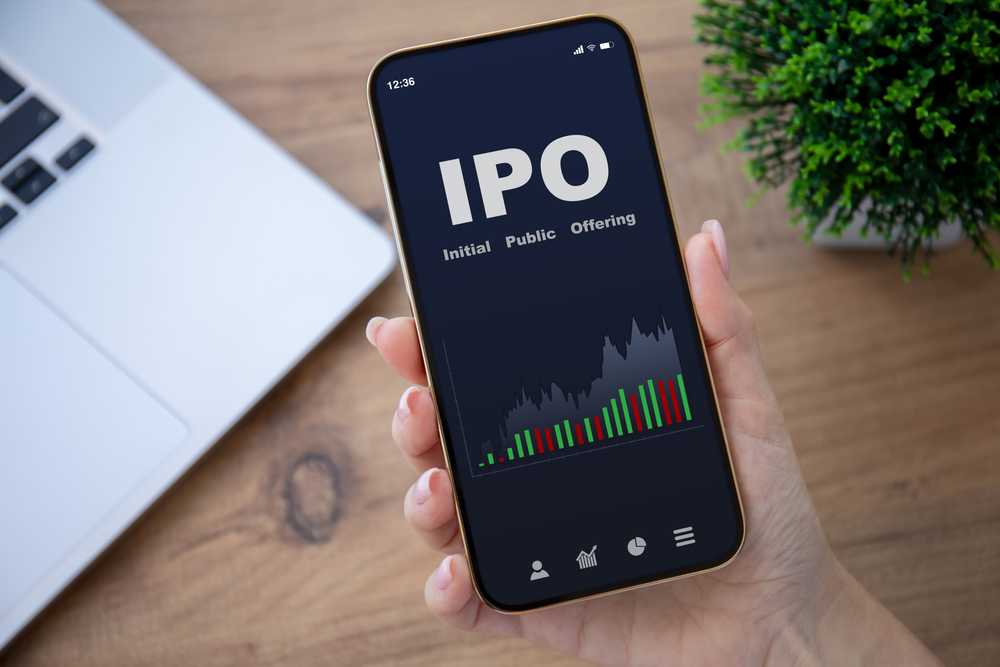Looking to buy stock in a new company? You’ll probably want to get it at its initial public offering, known as an IPO, where a private corporation sells shares of the company to public investors for the first time.
Before a private company becomes public it offers initial shares to the public at a discount to ensure sales and raise enough capital to recoup the costs of private investors. This means institutional and retail investors can get a great deal on shares before they start publicly trading.
How to buy IPO stock
As attractive as IPO’s sound, getting shares can be tricky. The investment banks that value and sell the shares typically sell around 90% to big institutional investors like pensions, endowments and hedge funds.
So how do retail investors get that coveted last 10%? There are a few ways.
What you need to know before buying
There are some people who can’t buy IPO shares. FINRA restricts any owner, partner, officer, director, manager, or employee of a company from purchasing its IPO shares. Even relatives of the restricted person are eligible.
If you’re not related to the company or any of its decision makers, you have the best chance of getting shares at their IPO price through a brokerage. Not all brokerages actually get IPO shares. Some of the most popular ones who do include Fidelity, TD Ameritrade, and E*Trade.
Just having an account isn’t enough. Brokerages limit access to IPO shares to customers who meet certain asset or trade requirements.
TD Ameritrade: Must have at least $250,000 in assets with the firm or have traded stock with Ameritrade at least 30 times in the last three months.
Fidelity: Must have at least $100,000 with the firm to participate in IPOs led by underwriter Kohlberg, Kravis, & Roberts. For other providers the minimum is $100,000 or $500,000 in certain assets.
E*Trade: No brokerage account minimum, just fill out an eligibility profile and you’ll be notified upon completion if you’re approved. If you’re not approved you can continue to modify the profile to increase your chances.
How do I buy stock before an IPO?
The actual process of buying IPO shares is simple but it happens in a short time-span so you’ll want to be sure you’re prioritizing emails or alerts from your broker.
Once you meet the minimum requirements at your brokerage the first thing you’ll do is request shares of the IPO you want by submitting a form. The form will indicate the maximum number of shares you want. Your request doesn’t entitle you to all those shares but once the IPO is “priced” you won’t be able to get more than the number you request.
Once the share is priced, meaning the investment bank selling the shares has published the official price of the IPO, you’ll place your order. There’s a tight deadline so again, you’ll want to be looking out for the email as soon as pricing occurs.
If pricing is higher than you anticipated when you made your request or you’ve changed your mind about the company after reading its prospectus, you’re not obligated to order all, or any of, the shares you requested. Alternatively, if you feel the stock is undervalued you can’t buy more than your original request.
And still, even once you order shares you’re not guaranteed them. You’ll only find out after you place the order if you got them all or how many shares you actually got. It’s at that point you’ll transfer money to your brokerage to buy the shares.
If you want to bypass this process there is an alternative way to get stock in a company before its IPO is priced. You can become a private investor in the company. Simply call the investor relations representative at the firm conducting the IPO and ask if shares are for sale in a private offering and at what price. This doesn’t always work and it is riskier but if they are available the representative will direct you to the firm's broker dealer and you can invest there.
Is it good to buy IPO stocks?
Buying IPO stocks can be a fast way to profit from companies you believe are a good investment. But you have to be able to stomach more volatility than the average investor, especially in the first few years.
Many IPO’s take a steep downturn after what’s known as a lock-up period. Company insiders such as officials and employees often sign a lock-up agreement that prohibits them from selling their shares for anywhere from three to 24 months. When that period is over many sell their shares to realize their gains, while simultaneously lowering the share price.
Thanks to technology and more access to private capital, we’re seeing fewer and fewer companies outrageously overvalued in their IPO. But with any young company there are still risks involved with investing. You should always read the prospectus of a company to get a clearer picture of whether that company’s stock is right for you as an investor.
Disclaimer: IPOs are Risky (Risk vs Reward)
With any great reward comes a greater level of risk. IPO’s are no different. Amazon, Facebook, and Google all had IPO’s but so did Blockbuster, Pets.com, and Enron. Facebook’s IPO was considered a flop at $38 per share and now trades at over $200.
Even after reading every page of the prospectus of a company you still never know what you’re going to get from the stock in the long run. Investing in IPO shares can be a great addition to a diversified portfolio but should never be the bedrock of your investing strategy.

